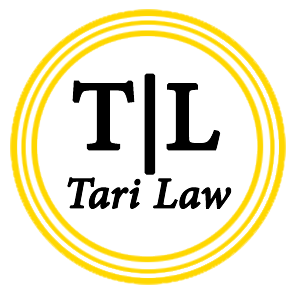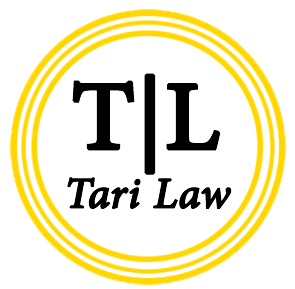Green Card for Professionals
National interest waiver (NIW) is a possible way for some individuals to obtain a green card without having to go through the PERM process. An NIW is available to those who can demonstrate that their work is in the "national interest." This is a very broad category, and applicants have succeeded in getting green cards based on a wide variety of jobs and activities. Some examples include scientists, researchers, entrepreneurs, and people with special talents or abilities.
The benefits of an NIW are that it is much quicker and easier to obtain than a regular green card, and there is no need to have a job offer or labor certification. The main disadvantage is that it is not available to everyone, and the government has considerable discretion in deciding who qualifies.
NATIONAL INTEREST WAIVER (NIW) EB2
A National Interest Waiver (NIW) petition falls in the employment-based, second preference (EB-2) immigration category. For most EB-2 applications, petitioners need a permanent job offer and an approved labor certification. However, in NIW these requirements could be waived for the sake of the “national interest of the United States,” thus allowing an applicant to apply for this status without a labor certification or a job offer from a U.S. employer.
In order to be qualify for an NIW petition, a beneficiary or applicant must have an “advanced degree” or “exceptional ability” in the sciences, arts, or business.
The beneficiary must also persuasively demonstrate that his or her proposed endeavor has both substantial merit and national importance; that he or she is well-positioned to advance this endeavor; and that it would therefore be beneficial to the United States to waive the standard requirements of a job offer and labor certification. While each NIW case is adjudicated on its individual merits, the burden of proof is always on the applicant or beneficiary to establish that exemption from labor certification will be in the national interest of the U.S.
Even if the beneficiary has no employer, he or she may file an NIW petition on behalf of him- or herself. Alternatively, a U.S. employer can file an NIW petition on behalf of an alien.
Advance degree is Master’s or higher degree from an accredited U.S. or foreign institution. If you have an advanced degree from a foreign institution, then you need to have your degree evaluated to match U.S. degrees.
If you do not have an advance degree (Master or higher degree from a U.S. university, then you must demonstrate that you have exceptional ability. You may be eligible if you can show at least three of the following:
- Official academic record showing that you have a degree, diploma, certificate, or similar award from a college, university, school, or other institution of learning relating to your area of exceptional ability
- Letters documenting at least 10 years of full-time experience in your occupation
- A license to practice your profession or certification for your profession or occupation
- Evidence that you have commanded a salary or other remuneration for services that demonstrates your exceptional ability
- Membership in a professional association(s)
- Recognition for your achievements and significant contributions to your industry or field by your peers, government entities, professional or business organizations
- Other comparable evidence of eligibility is also acceptable
The national interest requirements are described in the precedent decision of Matter of Dhanasar.
In order to show that the foreign national’s proposed endeavor has both substantial merit and national importance under the new law (Matter of Dhanasar), it must be shown that the applicant’s work is related to an important national goal and that the work is beneficial to the U.S.
Substantial Merit
The endeavor’s merit may be demonstrated in a range of areas such as business, entrepreneurialism, science, technology, culture, health, or education. Evidence that the endeavor has the potential to create a significant economic impact may be favorable but is not required, as an endeavor’s merit may be established without immediate or quantifiable economic impact.
National Importance
In determining whether the proposed endeavor has national importance, government considers its potential prospective impact. The prospective impact is not locked to a specific geographical location and its broader implication is evaluated.
Well-Positioned to Advance the Proposed Endeavor
This prong requires the foreign national to demonstrate that he or she is well positioned to advance the proposed endeavor. Factors considered include, but not limited to: foreign national’s education, skills, knowledge and record of success in related or similar efforts; model or plan for future activities; any progress towards achieving the proposed endeavor; and the interest of potential customers, users, investors, or other relevant entities or individuals.
Balancing Test
In this prong, petitioner is required to demonstrate that, on balance, it would be beneficial to the U.S. to waive the requirements of a job offer and thus of a labor certification.
- The physician agrees to work full time in a field designated by the Department of Health and Human Services (HHS) as a health professional shortage area or in a Veterans Administration (VA) hospital, and
- A federal agency or a state department of public health has determined that the physician’s work is in the public interest.
The physician, however, is not eligible for an immigrant visa or adjustment of status until such time as he or she has worked full time as a physician in a shortage area or VA hospital for an aggregated five years. Time in J-1 status cannot be counted toward the five-year period.
The USCIS rules clarify that the physician must agree to practice full-time in a HHS designated Primary Medical Professional Shortage Area, or a Mental Health Professional Shortage Area. Alternatively, a physician must serve at a VA facility. The rules also specify that only physicians who will practice in the following fields of medicine are eligible for waiver: family/general medicine, pediatrics, general internal medicine, obstetrics/gynecology, and psychiatry.

